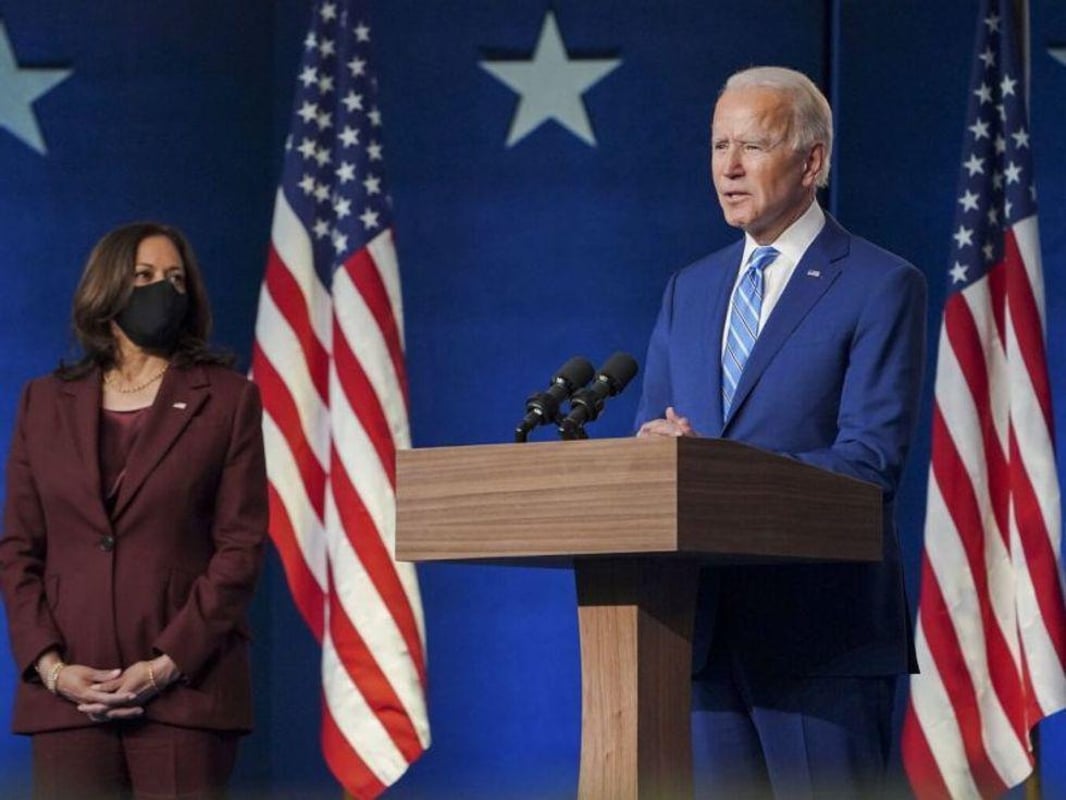Biden Pushes Vaccines, Masks as Best Defense Against Omicron Variant

MONDAY, Nov. 29, 2021 (HealthDay News) -- Vaccines and masks will be the United States' first line of defense against the new Omicron variant, not lockdowns or border closures, President Joe Biden told the nation Monday.
"If people are vaccinated and wear their mask, there's no need for lockdowns," Biden said, noting that vaccinated people who've gotten a booster shot are expected to have the best available protection against the Omicron strain.
Biden said the United States placed travel restrictions on southern African countries to give Americans more time to get vaccinated and boosted against COVID-19, but he added that more travel bans are not planned at this time.
"The degree of the spread impacts on whether or not there's a need for any travel restriction," Biden said. "I don't anticipate that at this point."
The Biden administration is working with vaccine makers Pfizer, Moderna and Johnson & Johnson to prepare contingency plans for updated vaccines or boosters if they're needed to block the Omicron variant, Biden said.
The White House plans to issue later this week a "detailed strategy outlining how we're going to fight COVID this winter, not with shutdowns or lockdowns, but with more widespread vaccinations, boosters, testing and more," Biden said.
News of the Omicron variant surfaced during the Thanksgiving holiday weekend, with the World Health Organization dubbing the new strain, also known as B.1.1.529, at an emergency meeting on Friday. Omicron is the 15th letter of the Greek alphabet.
The WHO designated Omicron a "variant of concern," mainly because of a high number of mutations in the spike protein the coronavirus uses to infect human cells.
There are between 26 and 32 mutations on the spike protein, "some of which are concerning and may be associated with immune escape potential and higher transmissibility," a WHO technical brief noted.
Cases of the Omicron variant have already been recorded in the United Kingdom, the European Union and Canada.
According to a statement released Sunday by Ottawa Public Health in Ontario, Canada, "two individuals in Ottawa tested positive for the COVID-19 Omicron variant with recent travel from Nigeria."
It's only a matter of time before the Omicron variant appears in the United States, Biden said.
"Sooner or later we're going to see cases of this new variant here in the United States," Biden said. "We'll have to face this new threat, just as we faced those that came before it."
But "this variant is a cause for concern, not a cause for panic," Biden added.
"We have the best vaccine in the world, the best medicines, the best scientists, and we're learning more every single day," he said.
It's still too soon to tell how big a threat Omicron will pose to the world and the United States, the White House said.
It will take about two more weeks to have solid information on how quickly Omicron spreads and how severely ill it can make people, White House Chief Medical Advisor Dr. Anthony Fauci said during a COVID-19 response team meeting on Sunday.
News reports out of South Africa noted that COVID-19 cases from Omicron have resulted in mostly mild symptoms.
"So far they have mostly been very mild cases, with patients having flu-like symptoms: dry coughs, fever, night sweats, a lot of body pains," Dr. Unben Pillay, a general practitioner in South Africa's Gauteng province, said during an online media briefing.
"Most of these patients have been treated at home," said Pillay, the Associated Press reported. "Vaccinated people tend to do much better. We have not seen a vast increase in hospitalizations, but this is still early days. Hospitalizations often come several days after a rise in confirmed cases."
One leading expert in virology and infectious disease has urged that people not immediately expect the worst from Omicron.
Might the variant trigger more serious disease? Could it evade current vaccines? Those are all unknowns, cautioned Dr. Amesh Adalja, a senior scholar at the Johns Hopkins Center for Health Security in Baltimore.
"It's too early to know what level of threat B.1.1.529 constitutes as there is not enough information -- particularly clinical information -- about the cases that have been identified," Adalja said. He said there was one early sign for hope: "It appears that the hospitalized patients in South Africa were largely unvaccinated, arguing vaccines protect against what matters."
Only about one-quarter of South Africa's population is vaccinated. During the press briefing, Biden noted that South Africa has a sufficient quantity of COVID-19 vaccines, but is having difficulty getting people to take the jab.
Responding to media questions, Biden rejected the notion that Americans should get used to new COVID variants emerging on a regular basis as the "new normal."
"I expect this not to be the new normal," Biden said. "I expect the new normal to be everyone ends up getting vaccinated with booster shots so we reduce the number of people who aren't protected to such a low degree that we're not seeing the spread of these viruses."
More information
The U.S. Centers for Disease Control and Prevention has more about COVID-19 variants.
SOURCES: media briefing with President Joe Biden, Nov. 29, 2021; Associated Press; Amesh Adalja, MD, senior scholar, Johns Hopkins Center for Health Security, Baltimore
Related Posts
Unos esteroides de uso común podrían alterar al cerebro
MIÉRCOLES, 31 de agosto de 2022 (HealthDay News) -- El uso de esteroides a largo...
Group of Brain Cells in Dish Can Play Computer Game Pong
WEDNESDAY, Oct. 12, 2022 (HealthDay News) -- Scientists have taught a brain cell...
Despite Stress of Pandemic, U.S. Suicide Rate Dropped in 2020
WEDNESDAY, Nov. 3, 2021 (HealthDay News) -- Despite the anxieties and tumult of...
Breakthrough SARS-CoV-2 Similar for Chronic Liver Disease With, Without Cirrhosis
TUESDAY, March 7, 2023 (HealthDay News) -- Full vaccination cuts the risk for...
